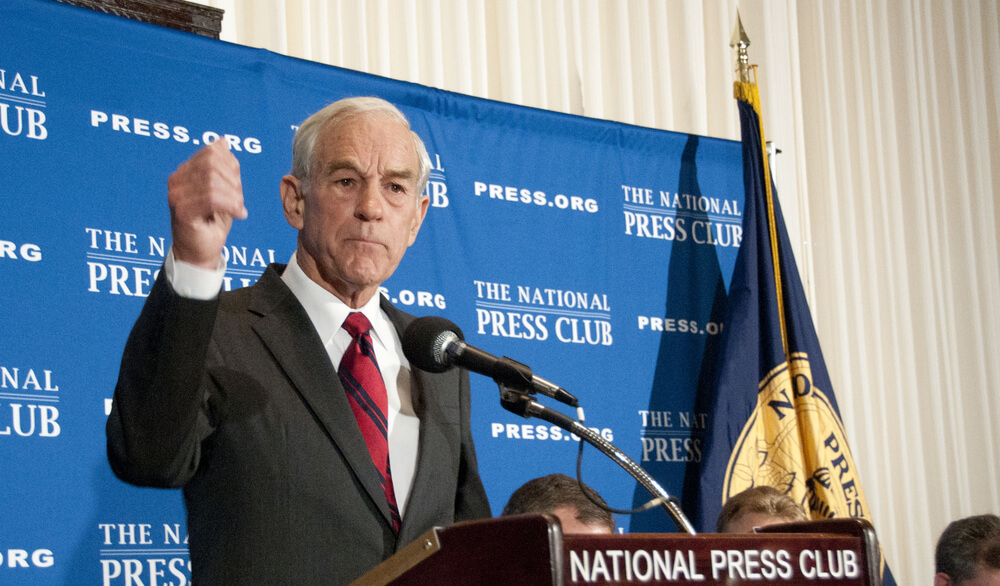In Ron Paul’s latest weekly column today, the former Libertarian and Republican congressman and presidential candidate laments “prominent social and populist conservatives” he claims are attacking libertarianism.
Paul wrote that conservative attacks on libertarianism are equivalent to attacks on the freedom philosophy launched by leftists — and all are based in factual, economic and philosophical errors.
Per Ron Paul Institute:
Libertarianism’s right-wing critics claim libertarianism is the dominant ideology of the Republican establishment. This is an odd claim since the Republican leadership embraces anti-libertarian policies like endless wars, restrictions on civil liberties, government interference in our personal lives, and massive spending increases on welfare as well as warfare.
Anti-libertarian conservatives confuse libertarianism with the authoritarian “neoliberalism” embraced by both major parties. This confusion may be why these conservatives blame libertarians for the American middle class’s eroding standard of living. Conservatives are correct to be concerned about the economic challenges facing the average American, but they are mistaken to place the blame on the free market.
The American people are not suffering from an excess of free markets. They suffer from an excess of taxes, regulations, and, especially, fiat money. Therefore, populist conservatives should join libertarians in seeking to eliminate federal regulations, repeal the 16th Amendment, and restore a free-market monetary system.
Instead of fighting to end the welfare-regulatory system that benefits economic and political elites at the expense of average Americans, populist conservatives are promoting increased economic interventionism. For example, many populist conservatives support increased infrastructure spending and tariffs and other forms of protectionism.
Like all forms of central planning, these schemes prevent goods and services from being used for the purposes most valued by consumers. This distorts the marketplace and lowers living standards — including of people whose jobs are temporally saved or created by these government interventions. Those workers would be better off in the long term finding new jobs in a free market.
Anti-free-market conservatives ignore how their policies harm those they claim to care about. For example, protectionism harms farmers and others working in businesses depending on international trade.
The most common complaint of social conservatives is that libertarianism promotes immorality. These conservatives confuse a libertarian’s opposition to outlawing drugs, for example, with moral approval of drug use. Many libertarians condemn drug use and other destructive behaviors. However, libertarians reject the use of government force to prevent individuals from choosing to engage in these behaviors. Instead, libertarians support the right of individuals to use peaceful means to persuade others not to engage in destructive or immoral behaviors.
Libertarians also support the right of individuals not to associate with, or to subsidize in any way, those whose lifestyles or beliefs they find objectionable. Social conservatives object to libertarians because social conservatives wish to use government power to force people to be good. This is the worst type of statism because it seeks to control our minds and souls.
Most people accept the idea that it is wrong to initiate force against those engaging in peaceful behaviors. Libertarians apply this nonaggression principle to government. Making government follow the nonaggression principle would end unjust wars, income and inflation taxes, and the destruction caused by the use of force to control what we do with our property, how we raise our children, who we associate with, and what we put into our bodies. Making governments abide by the nonaggression principle is the only way to restore a society that is free, prosperous, and moral.
